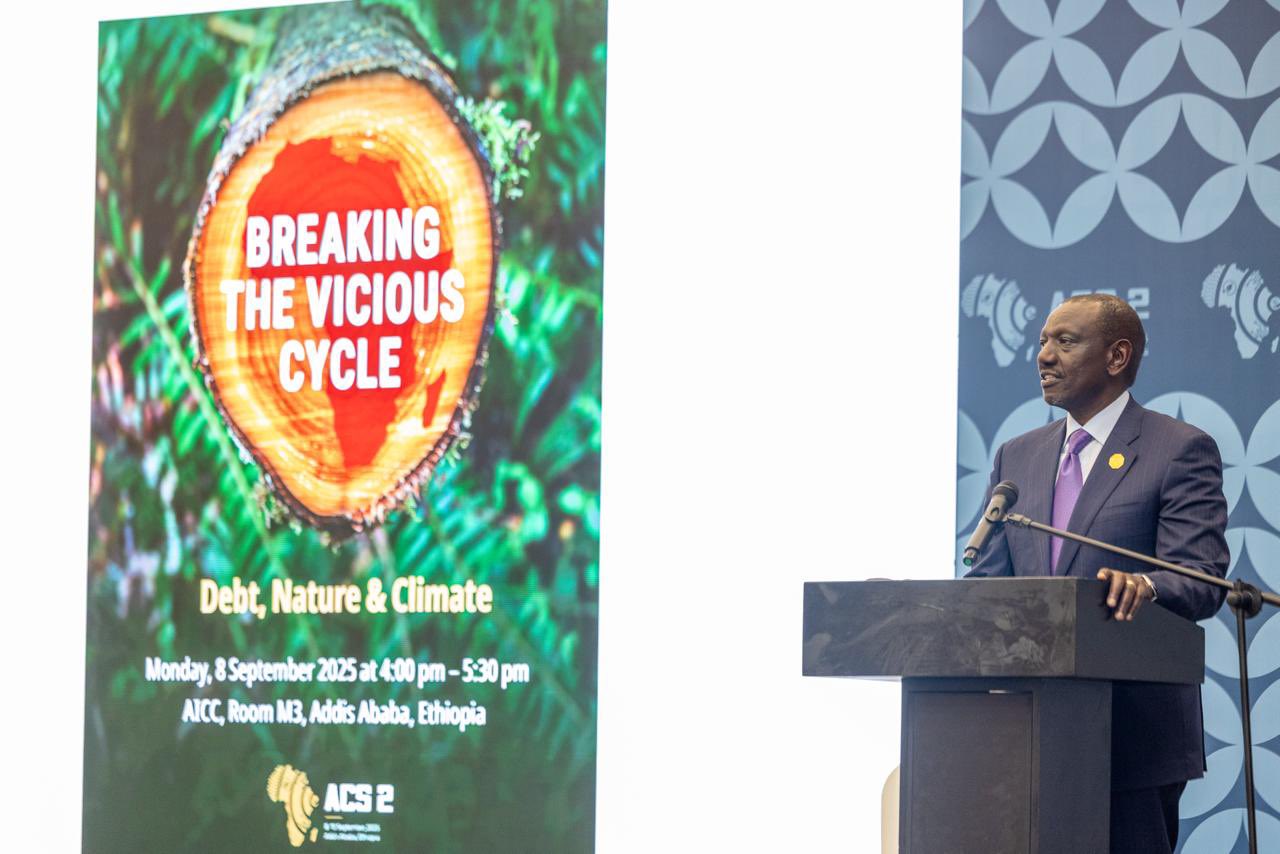
 President William Ruto speaking during the Second Africa Climate Summit in Addis Ababa, Ethiopia on September 9, 2025 / PCS
President William Ruto speaking during the Second Africa Climate Summit in Addis Ababa, Ethiopia on September 9, 2025 / PCSPresident William Ruto has expressed dissatisfaction with the current international financial architecture saying it punishes poor countries.
Ruto said the current international financial architecture has increasingly become an agent of a new form of colonialism.
According to Ruto, the system punishes poor countries with high interest rates while rewarding rich countries with very low interest rates.
“This injustice locks developing nations in cycles of
debt and dependency, denying them the resources they need to invest in growth,
opportunity, and dignity for their people. We will not remain silent until this
unjust financial architecture is reformed,” he said.
“We will continue to speak out because the present system does a grave disservice to the developing world and undermines the promise of shared prosperity.”
Ruto said the time has come for a fair and just financial
order, one that recognises the aspirations of all nations and gives every
country the chance to thrive.
He spoke on Monday at the sidelines of the second Africa Climate Summit, Addis Ababa, Ethiopia where he addressed a special session on “Breaking The Vicious Cycle: Debt, Nature And Climate”.
The President affirmed unwavering commitment to continue advocating for the reform of the international financial architecture until the matter is settled, as the current system profoundly disadvantages developing countries.
Speaking during the Second Africa Climate Summit, Ruto called for urgent and effective debt restructuring and refinancing for Africa’s most distressed economies.
He warned that without decisive action, the continent’s commitments to climate and development finance will remain “aspirational.”
Ruto emphasised that meaningful financial reform is indispensable if African nations are to address both climate change and development goals simultaneously.
“Without debt restructuring, Africa’s shared commitment to climate and development finance will remain aspirational,” he said.
Ruto underscored the need to overhaul the current approach under the International Monetary Fund (IMF)’s Common Framework, calling it inadequate in its current form.
“Restructuring must be fair, timely, and effective. The IMF’s Common Framework must be reformed to deliver real relief—not merely more process,” he stated.
Citing data from across the continent, the President revealed that at least 21 African countries are either in or at high risk of debt distress, with debt service consuming an average of 13.5 per cent of government spending.
This, he warned, outpaces public spending on essential services like health and education, undermining the very social fabric that climate action depends upon.
“Many of these countries have lost market access, unable to secure new capital or refinance at sustainable rates and tenors,” Ruto lamented. “These macroeconomic realities directly undermine climate and development action.”



![[PHOTOS] Ruto presides over signing of cooperation agreement at ACS 2](/_next/image?url=https%3A%2F%2Fcdn.radioafrica.digital%2Fimage%2F2025%2F09%2F49bd5c2f-0275-4d80-874e-16770819d4d0.jpeg&w=3840&q=100)















